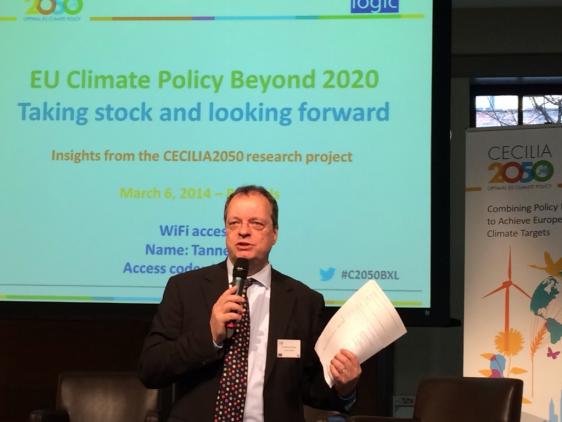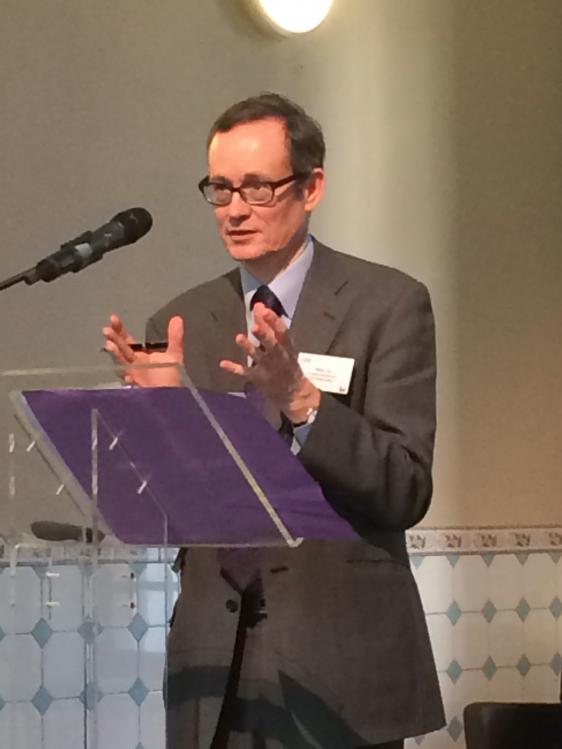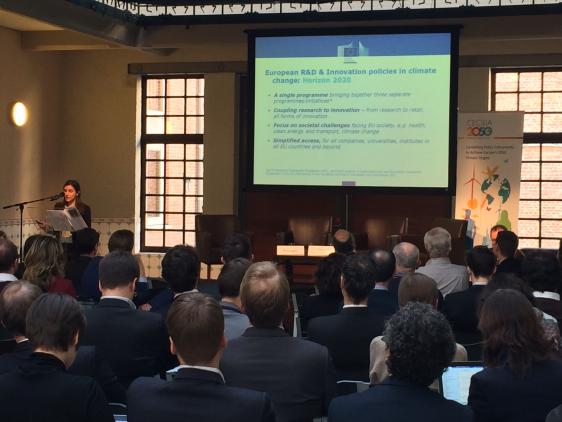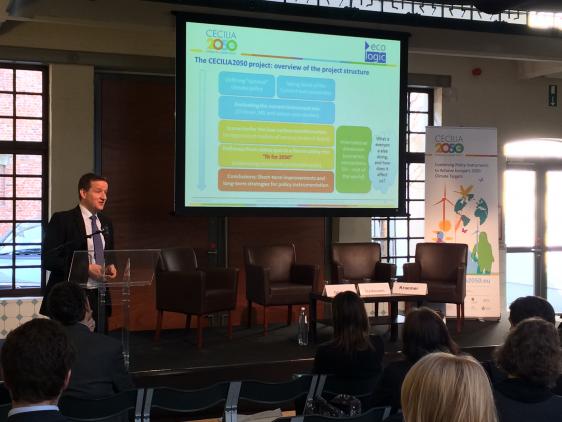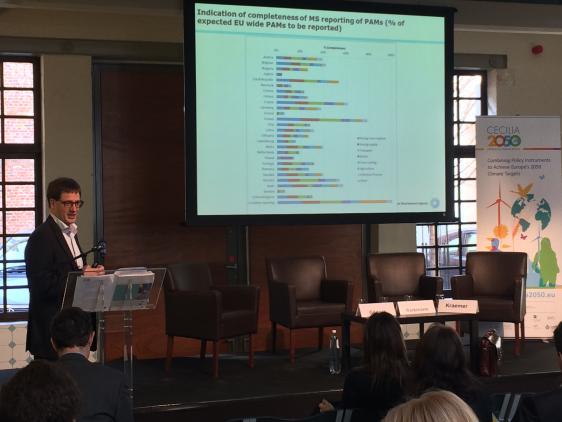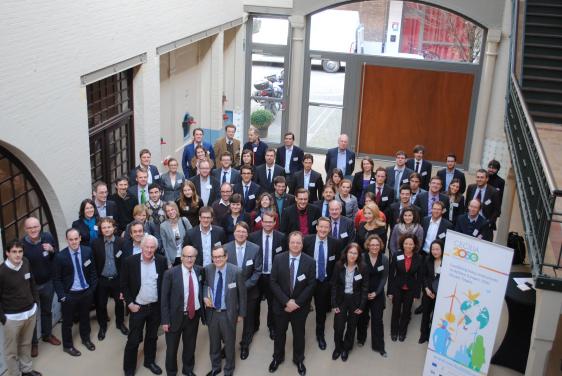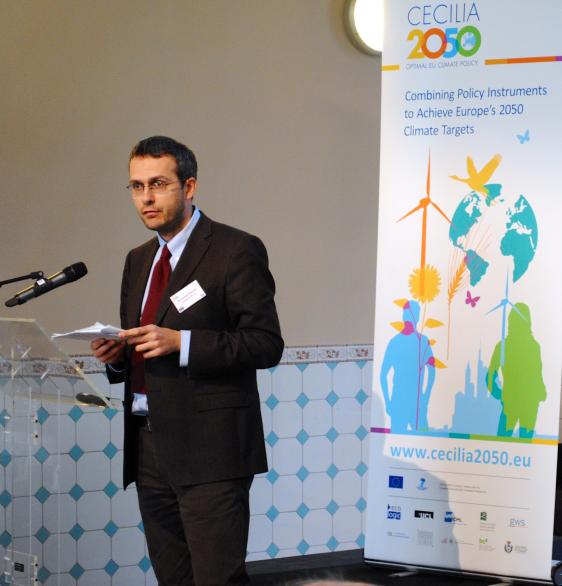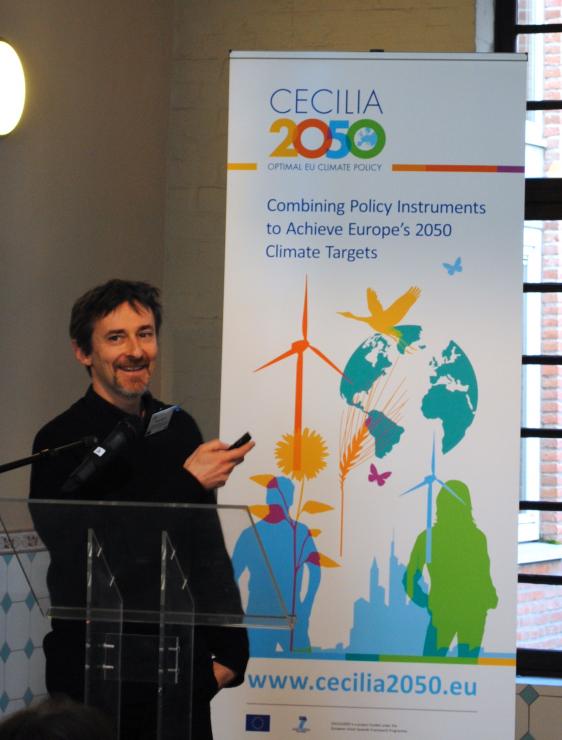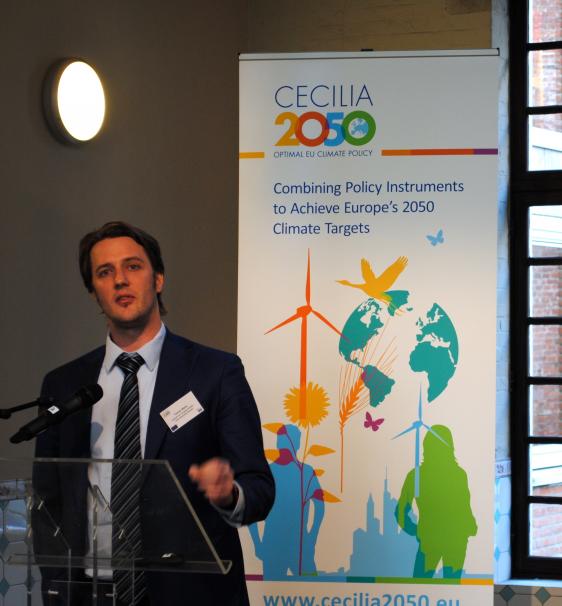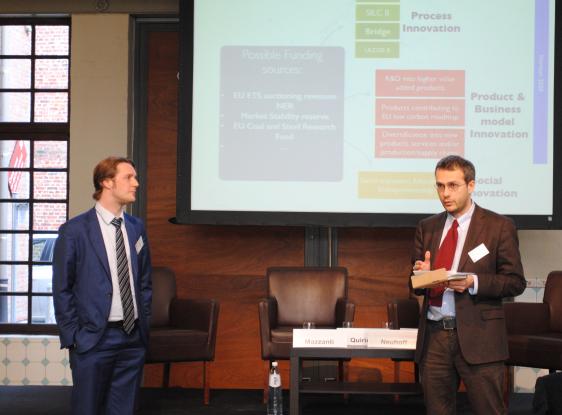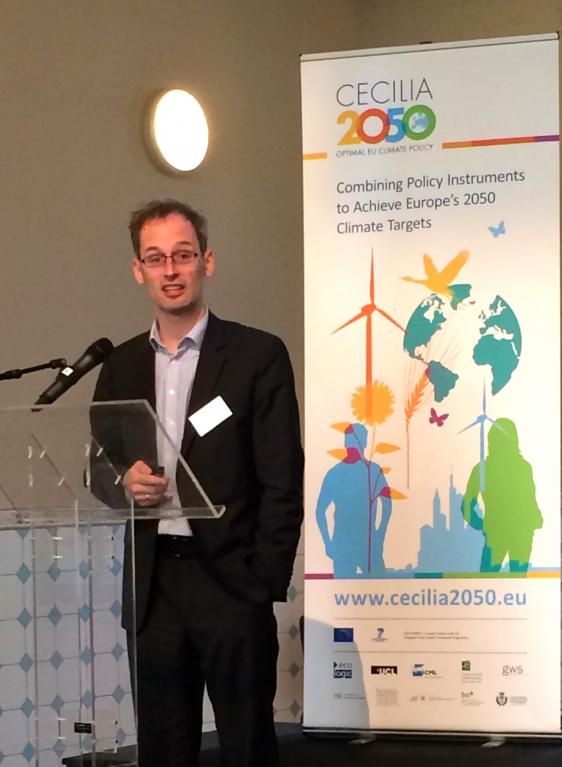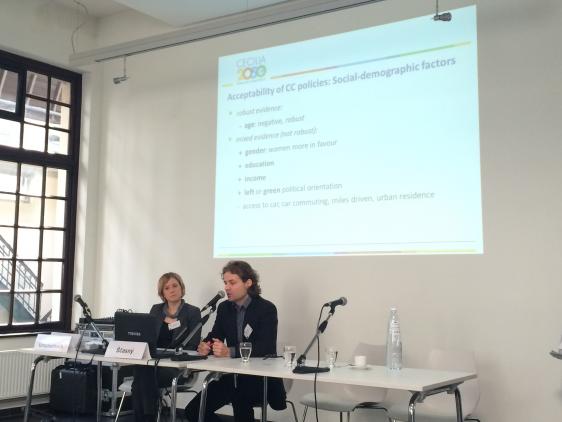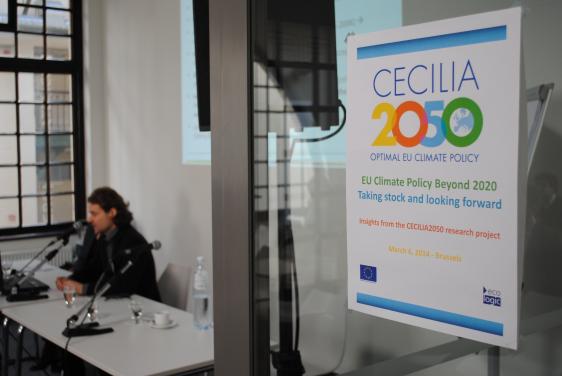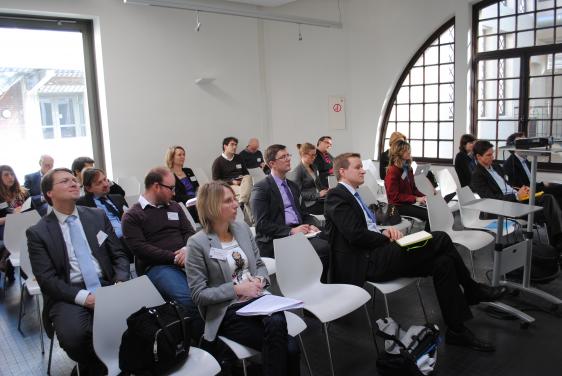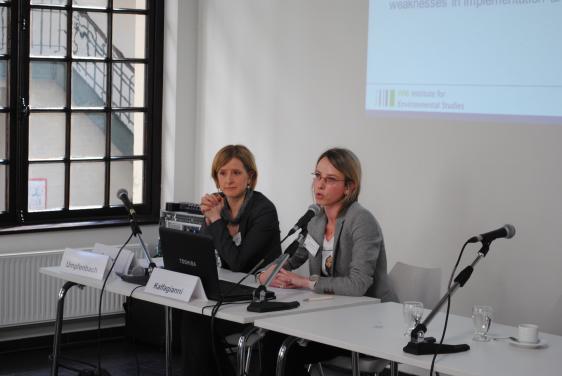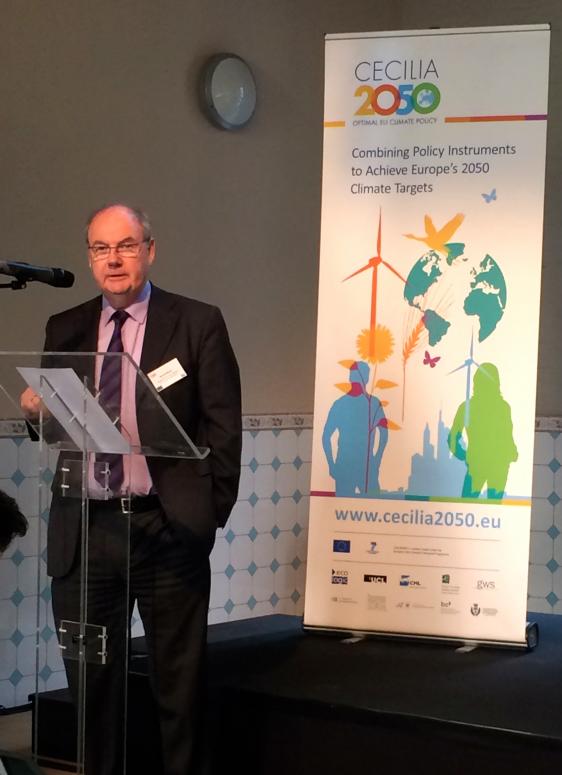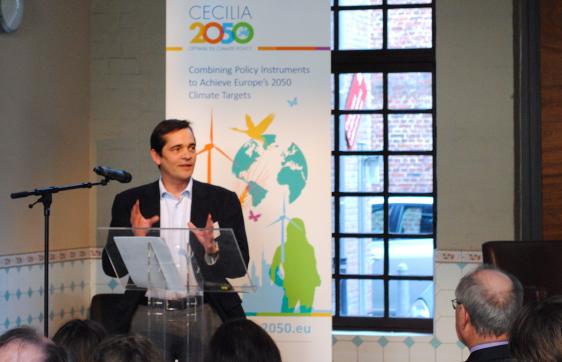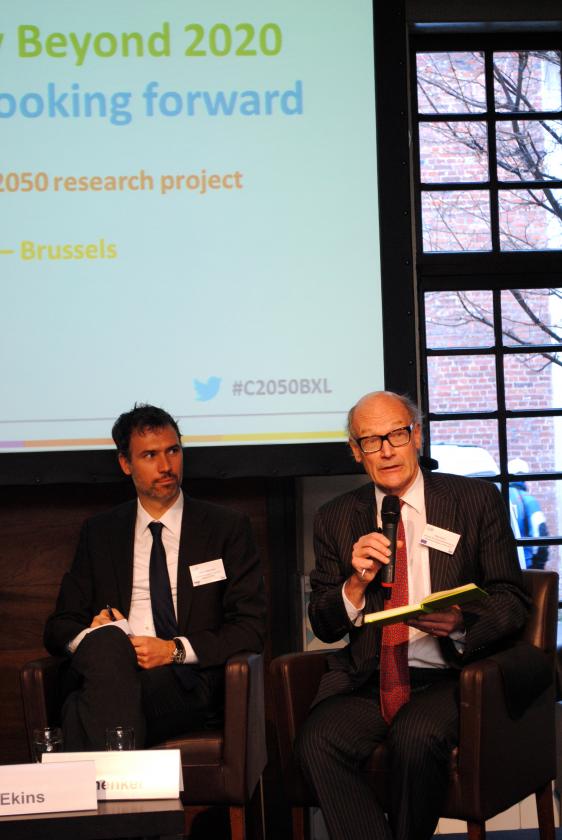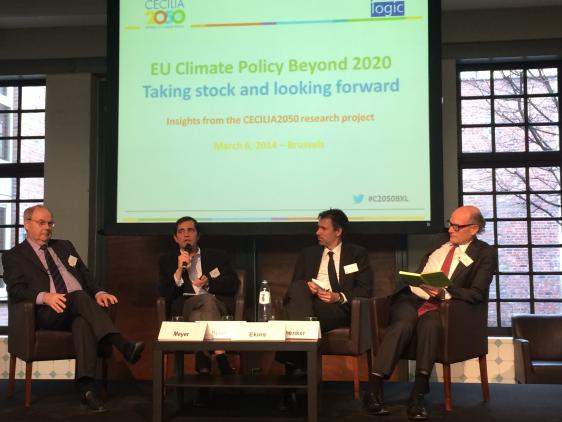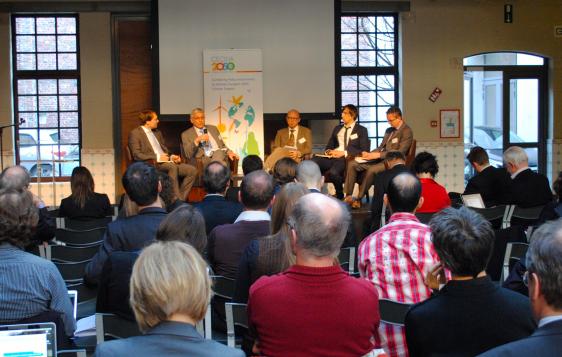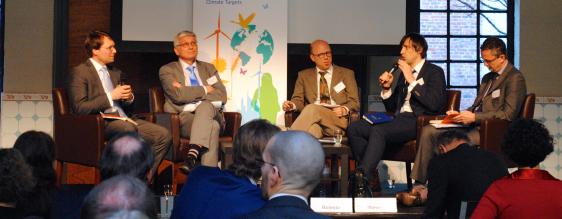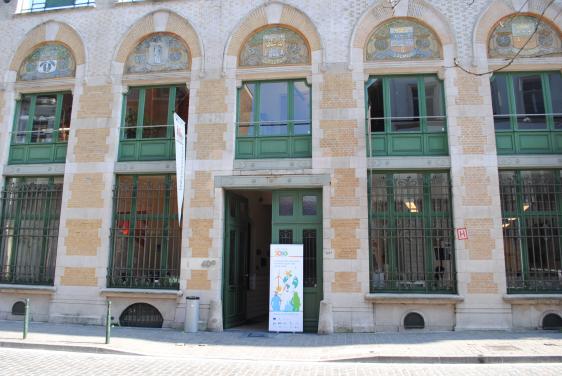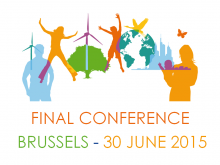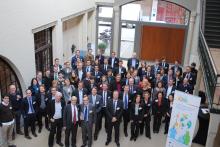
On 6 March 2014, the CECILIA2050 consortium held a high-level expert conference in Brussels on the EU’s climate policy beyond 2020. Around 80 participants from industry, NGOs, academia and governments engaged in the discussions on the present and future climate policy mix.
The conference featured the main results of the first part of the CECILIA2050 project, which provided a stock-taking and ex-post evaluation of climate policies in Europe – at the EU level and in the Member States, and across a number of sectors. The analysis was complemented by commentaries from experts from policy and academia. The discussions centered on the assessment of the existing policy instrument mix, its impacts and limitations. Next to the broader policy picture, the conference highlighted project results on low-carbon innovation and public support for climate policies, with an exemplary focus on the cement and the agri-food sector. In the second part of the conference, scenarios for energy were presented and discussed, and an expert panel drew lessons from the debates for the EU’s 2030 climate and energy framework.
The conference also created an excellent and timely forum for debating the proposal on the 2030 climate and energy framework that the European Commission had proposed only few weeks earlier, and for connecting the research performed in CECILIA2050 with the current policy debate – providing a productive exchange in both directions. Controversial but fruitful discussions disclosed the plethora of diverging views on targets for 2030, their operationalisation and the optimal instrument mix for achieving them. This concerned especially the need for a renewable energy target at EU or national level, the proposed governance framework, the role of the European Emissions Trading Scheme and the need for other policy instruments.
The conference demonstrated the relevance of the CECILIA2050 project for the current discussions on post-2020 EU climate policy, and accentuated how important it is to not just provide theoretical answers to the problems at hand, but to also acknowledge real-life constraints and to incorporate these into the scientific analysis.
If you are interested in knowing more about the event, please follow this link to our conference webpage, where you can find further information on the event, including the conference agenda and the presentations of the experts that participated in the conference. An encompassing report on the proceedings of the conference is available here!


